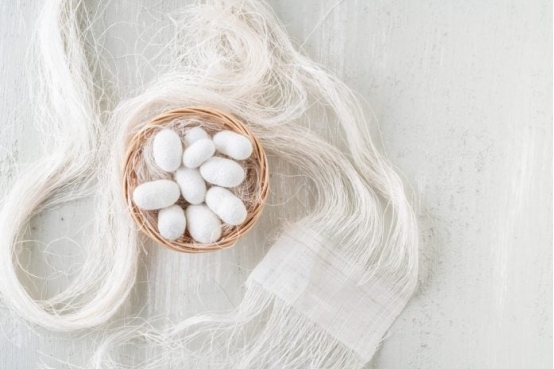By Vaso Vegiri

The demand for Greek silk from fashion houses and European businesses in general is increasing, and the two main Greek silk factories in the Soufli region of Evros are investing in boosting their production.
However, the production of raw materials in the region—namely the cocoons that yield the silk fiber—was already insufficient and suffered an additional blow following the OPEKEPE scandal.
Silk farmers in the area are joining forces to increase output and have established a cooperative with about 15 members for this purpose.
Yet, the OPEKEPE scandal involving illegal subsidies also affected sericulture. Representatives of the sector told Naftemporiki that the production of 1,200 boxes of silkworm eggs in Crete had been falsely declared two years ago, while Soufli—the true center of Greek sericulture and silk manufacturing—declared only 700 boxes. As a result, genuine sericulture farmers in Evros lost at least half of the subsidies they were entitled to. Meanwhile, international demand for Greek silk continues to grow, forcing Soufli’s silk factories to import much of their raw materials—cocoons and silk fibers—from abroad.
Konstantinos Mouchtaridis, owner and head of Mouchtaridis Silkline, told Naftemporiki:
“Sericulture and silk fabric production in our region are doing quite well. What’s not going well is cocoon production. In my view, those involved in sericulture must adapt to new developments. We can’t compete in the global market with outdated methods, old mindsets, and no innovation. We are ready to process the cocoons, and we’ve received offers from all over Europe for silk—if only we can produce it.”
Similarly, Giorgos Tsiakiris, owner and head of the Tsiakiris Silk Factory, emphasized to Naftemporiki that there is growing demand abroad—mainly from European markets and fashion houses—for Soufli silk, while domestic demand is also on the rise.
(Editor: fubo )


